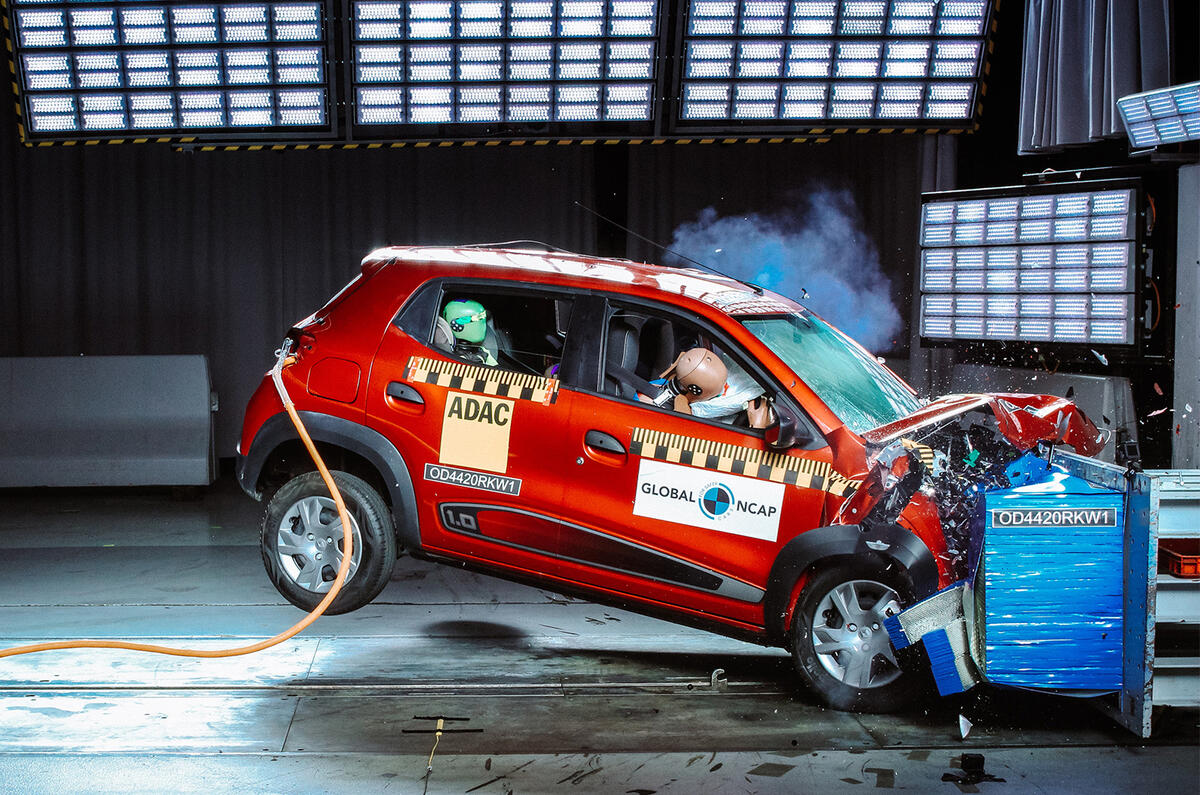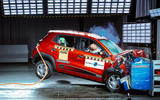Vehicle safety body Global NCAP has again thrown a spotlight on the disparity between the safety standards we are accustomed to in Europe and those of cars sold in lower-income markets, which the United Nations says account for 90% of the world’s 1.3 million annual road deaths.
The Renault Kwid, already lambasted after poor results in India and Brazil, scored just two stars in Global NCAP’s recent Safer Cars for Africa test, despite the criteria being lower than in Europe and the US. The poor result also comes in spite of the Kwid receiving safety upgrades including driver and passenger airbags.
The Kwid is closely related to the Dacia Spring Electric, which is expected to be the cheapest mass-production electric car when it goes on sale in Europe (but not the UK) next year.
The Spring Electric will require significant structural upgrades over the Kwid, as well as the inclusion of electronic safety systems, in order to meet European safety standards.
Back in 2018, Suzuki was criticised after the Swift built by subsidiary Maruti Suzuki, India’s biggest car maker, scored just two stars, with its bodyshell being described by Global NCAP as “unstable”. The Swift sold in markets such as India and Africa hides its poor safety well, because it’s visually identical to the Swift sold in the UK, a car that scored three stars in the notably more stringent Euro NCAP test.
So are manufacturers guilty of applying different safety standards when it comes to the quality of materials in cars that look identical? Most definitely in the case of the Kwid, said Alejandro Furas, technical director at Global NCAP, who believes different-quality steel and even lower-quality welding are used in order to cut costs.

“If you look at the Kwid, the Brazilian version has way more reinforcements in the A-pillar than the Indian one, and we see that from stripping the car,” he said. The Kwid was significantly upgraded for Brazil in response to a public outcry when it failed its initial crash test there.









Join the debate
Add your comment
Ultimately, manufacturers will just follow the regulations of the country they sell in. It's up to the government of that country to improve their standards. Better driving standards would also do far more to prevent deaths than any active or passive safety system, which is partly why the UK has the lowest/second lowest road death rate in the world.
There are several other factors at play here. Driving standards and attitudes are wildly different to Europe, as mentioned in the article. Roads are not up to the same standards either. The number of different users on the roads, particularly more vunerable ones, are higher. The safety features of the car is one part of a much bigger issue. If they want to reduce road deaths, they need to look at all these factors. Manufacturers will do the absolute minimum they need to do. They won't want to price themselves out of a market.
EuroNCAP have done wonders for car safety over the past 20 years. My issue with them is that passive safety scores (bodyshell strength etc) are rolled up with active safety (AEB etc).
Why cant these be separated into two scores, so we dont get silly anonomalies such as a Fiat Punto going from 5* to 0*, when the passive safety items are the same. A 0* 2018 Punto is not an unsafe vehicle, when compared to a 0* 1997 Rover Metro, or an Indian market Renault Kwid.
CWBROWN - completely agree. I stopped looking at EuroNCAP scores when I discovered that the difference in score between 2 cars I was considering was that the seat belt buzzer was a two tone noise in one car than the other one tone - makes no difference to me in the real world but sadly most buyers wouldn't check why and just assume one was actually safer physically in a crash.